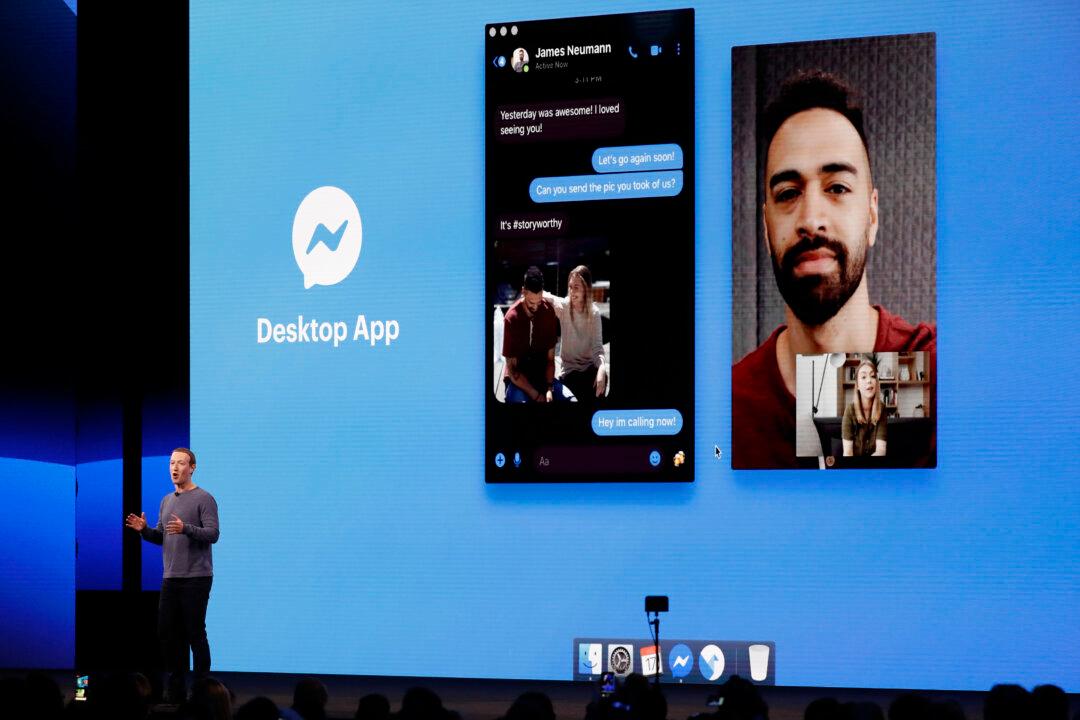MENLO PARK, Calif.—Facebook Inc. on April 30 debuted an overhaul of its core social network and new business-focused tools, the first concrete steps in its plan to refashion itself into a private messaging and e-commerce company.
Chief Executive Mark Zuckerberg unveiled a fresh design for the world’s biggest social network that de-emphasized its News Feed and showcased services like its messaging app, online marketplace, and video-on-demand site.





